Also called nudibranches
These creatures have amazing variety of shapes, patterns and colors.
How do these snails survive without shells? Why are they so varied and colorful?
They eat the stinging or toxic cells of sea anemones or coral without discharging them. The cells then pass from the slug’s digestive tract to the feathery structures on the back where they are used for defense. The bright colors and patterns combine with a sour or toxic taste so fish notice them and are repelled.
Some glow by eating luminescent algae and passing it through to their skin.
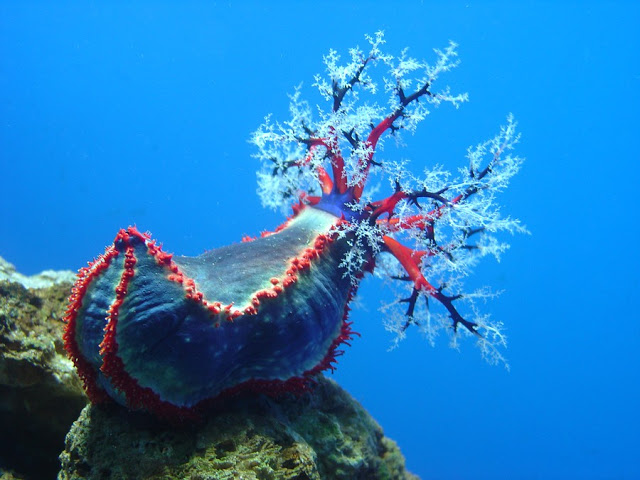
|
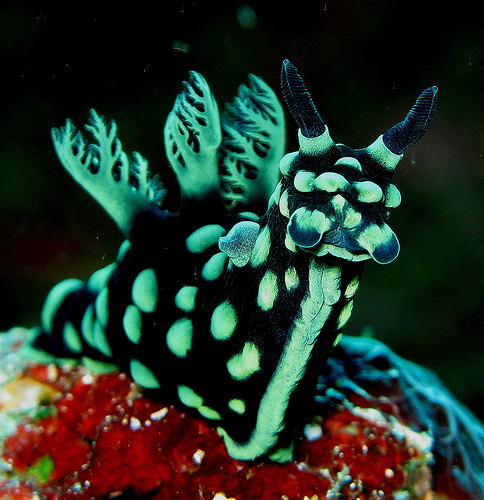
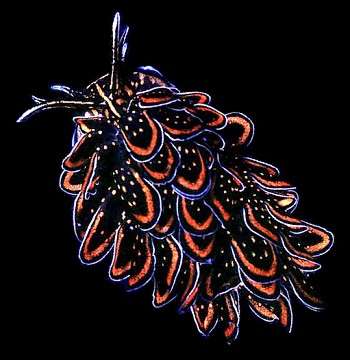
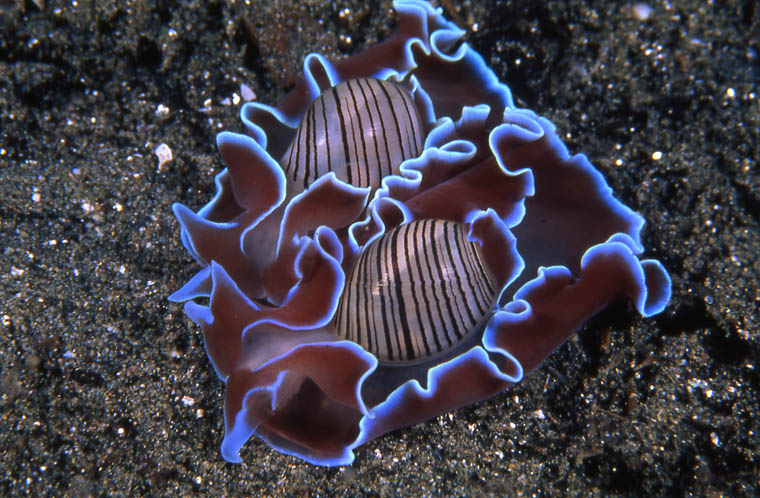
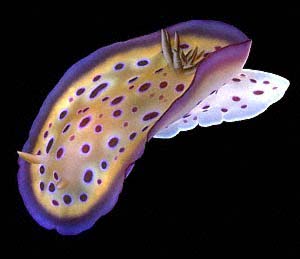
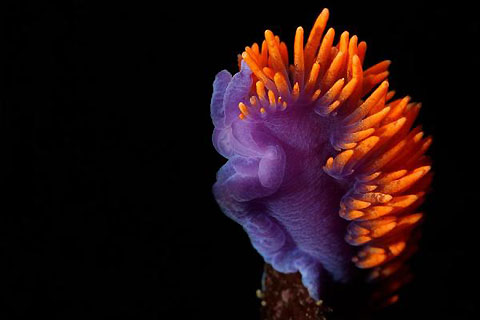
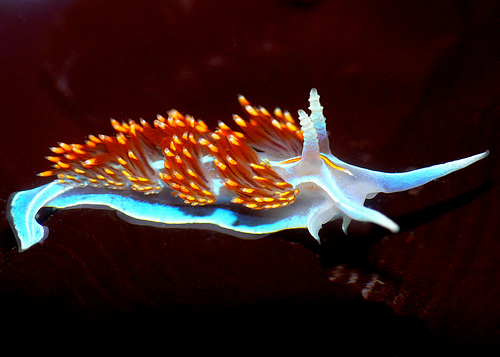
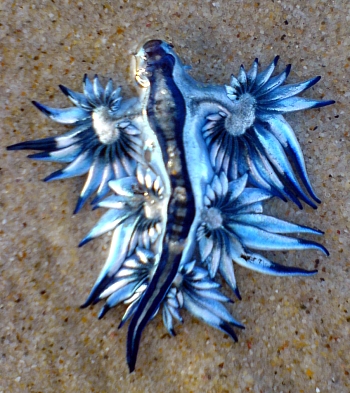
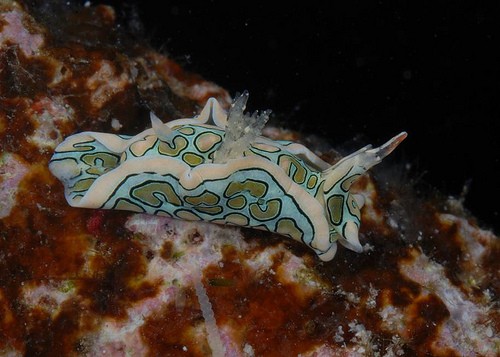
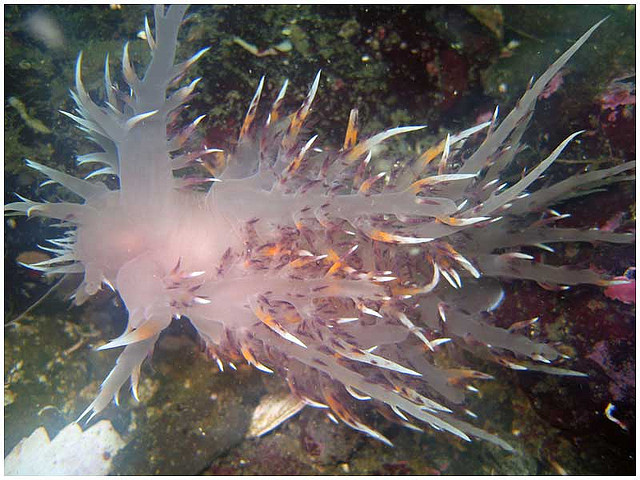
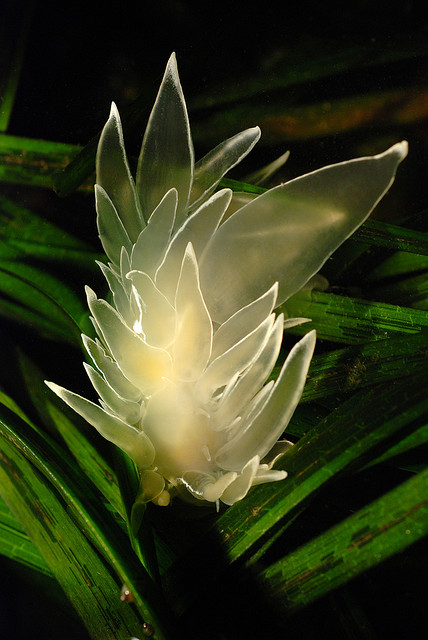
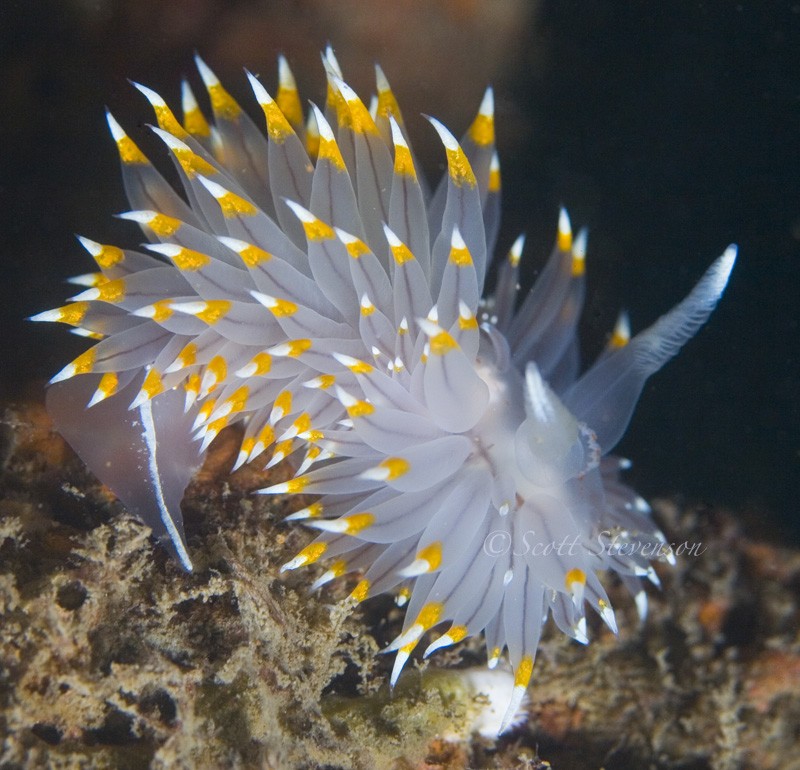
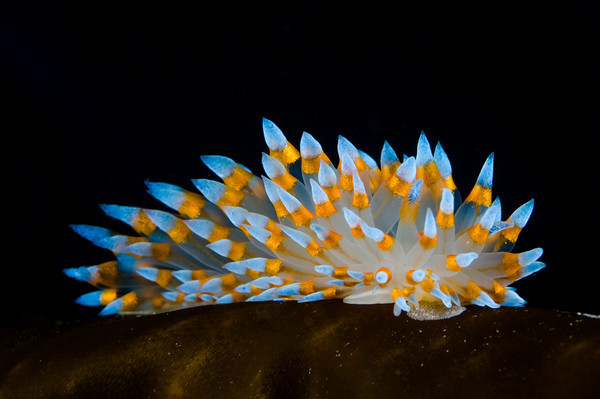
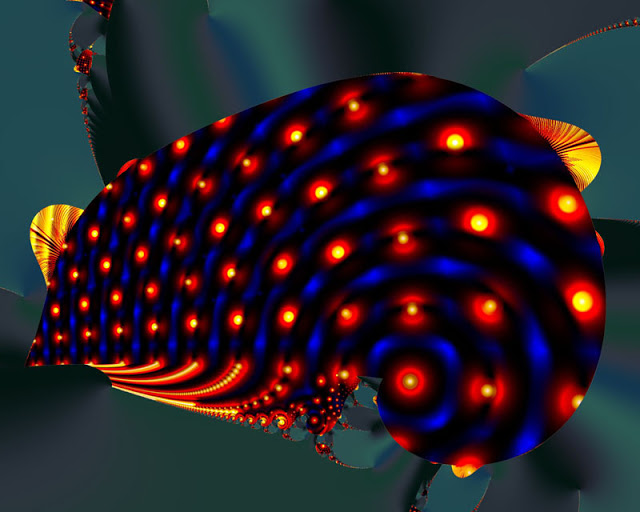
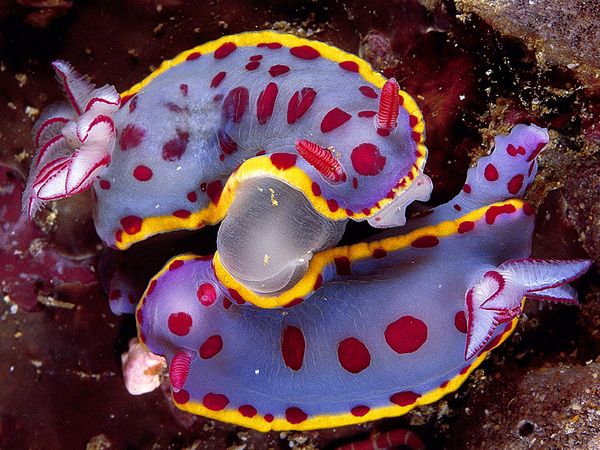
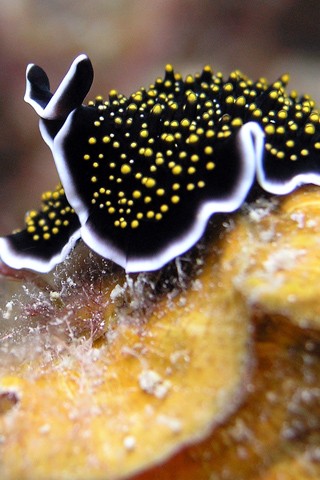
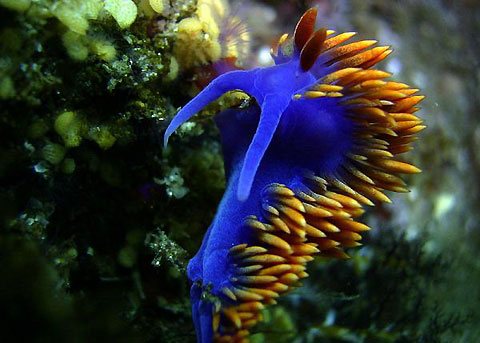
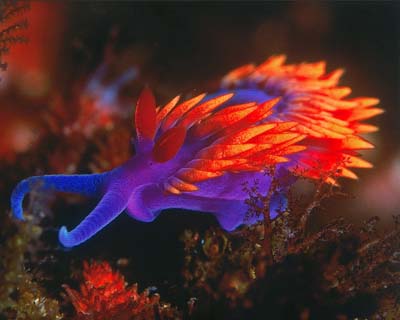
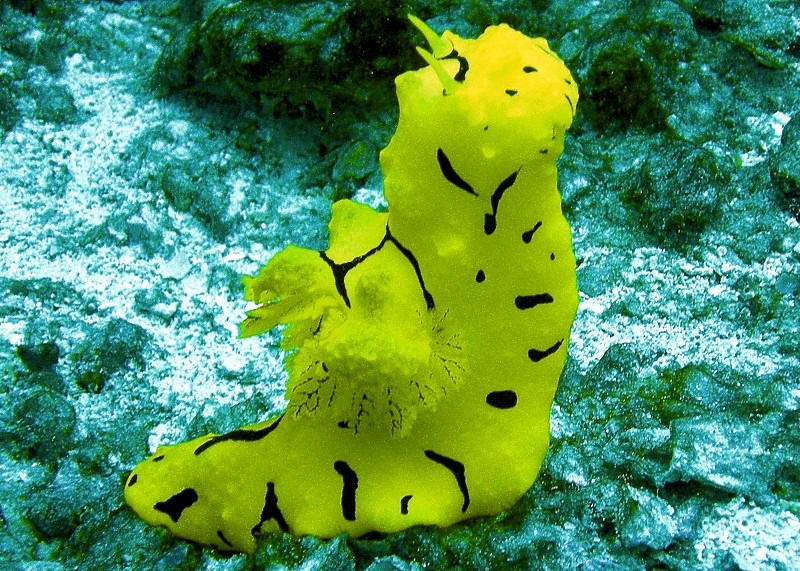
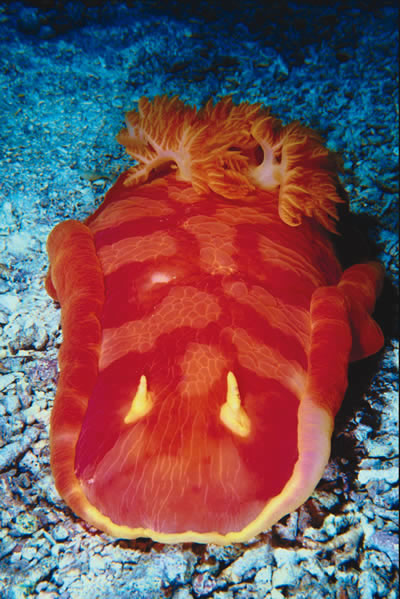
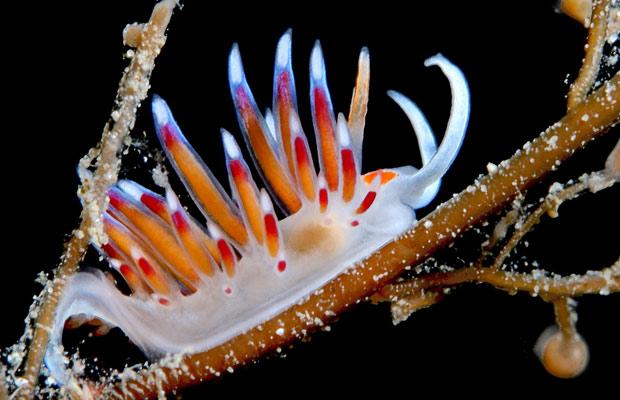
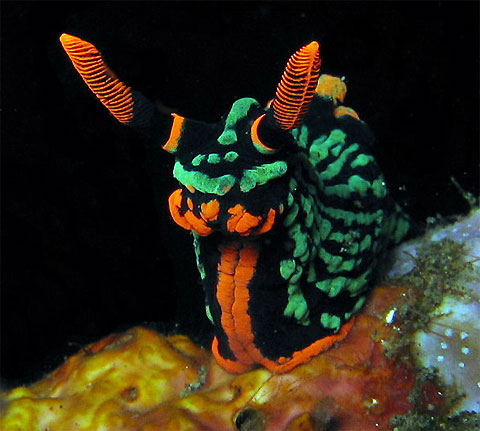
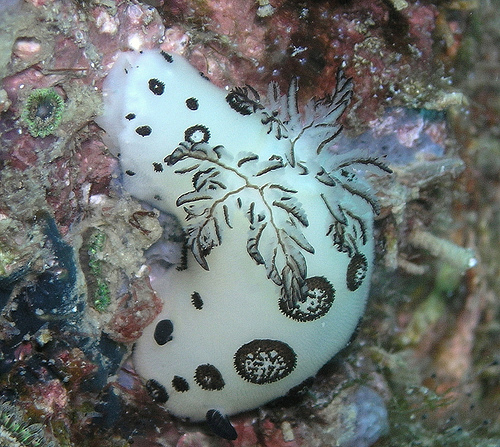
Pingback: Gary in echt: So schön sind Meeresschnecken
6th from bottom is a sea cucumber
Beautiful photos but just a shame the photographers don’t take the time to try and have species identified
John, I don’t think we know what the photographer said or didn’t say when they put an image on the internet. It gets copied and passed along and the name of the photographer gets lost as well as any description they might have made. I think that’s a real shame, but not enough that I don’t enjoy the wonder-filled photos and love sharing them with people who appreciate them.
Can you please add the scientific classification, i am doing a school project and was dissipointed that I had to look up more websites.
Sorry I didn’t see this sooner. But this site is for my own pleasure and others who enjoy what I share. The research is your job. Hope you learned what you needed.
Sorry. this website is for my pleasure and those who enjoy what I share. Hope you enjoyed doing your own research.